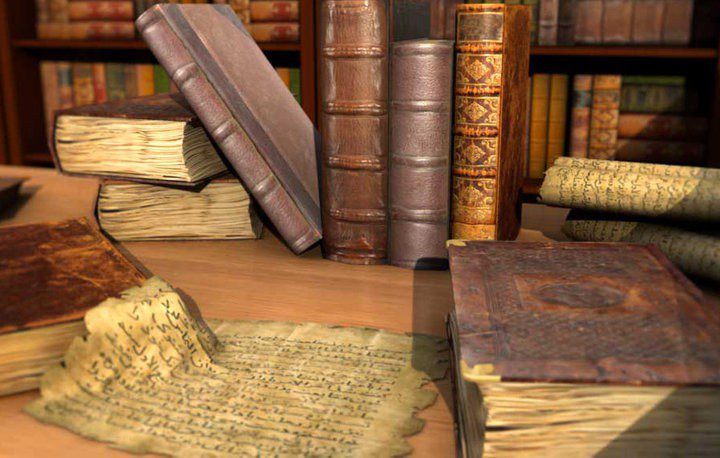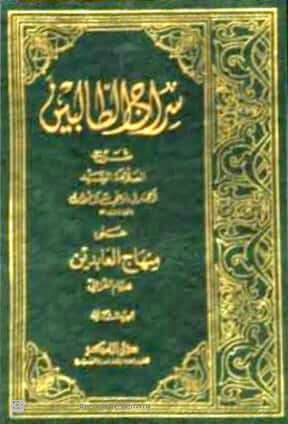
The student, at the beginning of seeking knowledge, is recommended not to occupy his mind with the differences of scholars in order not to perturb his mind.Īs to the teacher, he should be patient and forbearing. You should not divulge his secrets, nor backbite people in his presence, nor find his faults … “ You should sit before him and avoid overburdening him with questions. In Al-Jami’ li Akhlaq Al-Rawi wa Adab As-Sam’, AlKhatib Al-Bughdadi reported that ‘Ali (may Allah be pleased with him) said: “It is the right of the scholar to greet the public in general and to be greeted in particular.

He, further, should evaluate things and give preference to his teacher’s opinion over his own. The student should be on his guard against feeling pride, for it is the flaw of the ignorat1t. In his Jami’ Bayan Al-‘iIm wa Fadlih, Ibo ‘Abdel-Barr states that Ibn ‘Abbas (may Allah be pleased with them both) used to hold the rein of Zayd ibn Thabit’s mount and derive it, saying, “This is what we are required to do with scholars.” To the student the teacher should be like a physician to a patient. For example, Imam Ahmad (may Allah have mercy upon him) did not marry except after the age of fourteen. The early Muslims used to give precedence to knowledge over anything else. He should dedicate his life for seeking knowledge. The student should start with purifying his own soul, and steer clear of evil manners, for knowledge is the worship of the heart. “On the Day of Judgment, the most grievous torment will be inflicted upon a scholar whose knowledge was of no avail.” ((Reported by At-Tabarani))

The Prophet (peace and blessings of Allah be upon him) is reported to have said: It leads to pride and showing-off, which will be of no avail in the Hereafter. Useless Knowledge – Mukhtasar Minhaj al-Qasidin (Towards the Hereafter)Īrgumentation with the sole intention of boasting and defeating others is the source of evil mam1ers. I this book, I have relied only on authentic and famous narrations, and I deleted from or added to the original book what seems necessary.
#Minhajul thalibin pdf free
Therefore, I have compiled a book free of those defects, and retaining the benefits of the original book (lhya’). However, the author of Minhaj Al-Qasidin, ibn Al-Jawziyy, says: Imam Al-Ghazali’ s lhya’ ‘Ulum Ad-Din (The Revitalization of the Sciences of Religion) has some defects that only scholars can realise, such as the narrations which have been traced back (to the Prophet) while they are fabricated or inauthentic. Also, I did not follow the order of the original book, and included some additional notes that are necessary: Prophetic Aluuiith and comments. In doing so, I left out some topics, which are dealt with in other famous books. I found it so elaborate that I liked to outline it focusing on the important points and objectives. Yet, when reading it for the second time, my admiration for it greatly increased. So, I decided to read it once more in order to absorb its deep meanings. When I read ibn Al -Jawziyy’ s Minhaj Al-Qasidin, I found it very beneficial for people. 0 Allah! Bless our Prophet Muhammad and his honorable family: I testify that there is no god but Allah, the One Who has no partner, and that Muhammad ls His Messenger and servant. Praise be to Allah, Who showers His mercy on all His servants, and guides His olx dient servants to the straight path.

In this book the author relied only on famous and authentic narrations. Therefore, Imam Ibn Al-Jawziyy compiled this book free of those defects, while retaining the benefits on the original book. In Imam Al-Ghazalis Ihya Ulum Ad-Din ( The Revitalization of Sciences of Religion) apparently has some defects that only scholars can realize, such as the narrations which have been traced back to the prophet while they are fabricated or inauthentic.

Mukhtasar Minhaj Al-Qasidin is an abridged version of ibn Al-Jawzi’s summary of Imam Abu Hamid Al-Ghazali’s well known book, Ihya Ulum Ad-Din. MUKHTASAR MINHAJ AL-QASIDIN (TOWARDS THE HEREAFTER) – Book Sample About the Book – Mukhtasar Minhaj al-Qasidin (Towards the Hereafter)


 0 kommentar(er)
0 kommentar(er)
